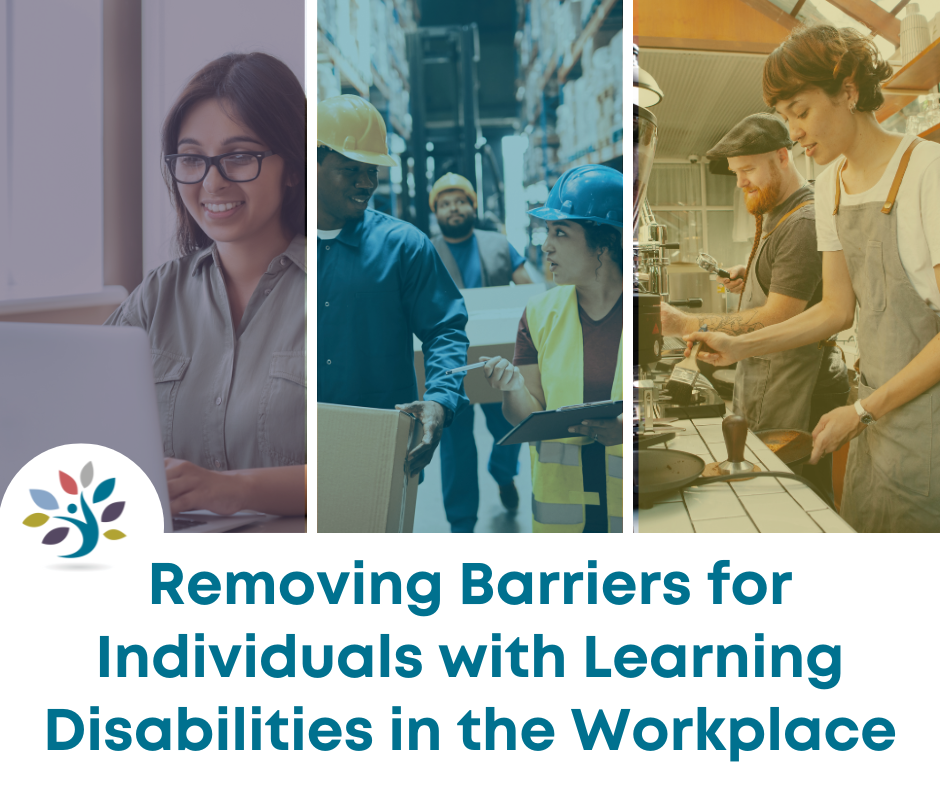by Amy Barto
The Americans with Disabilities Act (ADA) is a civil rights law which prohibits discrimination solely on the basis of disabilty in employment, public services, and accommodations. In this month’s Research segment, we looked closely at the structure of this law and definitions of the key terms “disability” and “major life activities” as related to learning disabilities. We noted that the law outlines that reasonable accommodations may include, but are not limited to, redesigning equipment, assigning aides, providing written communication in alternative formats, modifying tests, redesigning services to accessibility locations, altering existing facilities, and building new facilities, but how do individuals with learning disabilities gain access to such reasonable accommodations?
What is Reasonable?
Title I of the ADA is regulated by the U.S. Equal Employment Opportunity Commission and is designed to help people with disabilities access the same employment opportunities and benefits available to people without disabilities. Regulations apply to employers with 15 or more employees and require employers to provide reasonable accommodations to qualified applicants or employees [note: some state and/or local laws may require that employers with fewer employees provide reasonable accommodations].
The ADA defines disability (with respect to an individual) as: a physical or mental impairment that substantially limits one or more major life activities; a history or record of such an impairment; perceived by others as having such an impairment. The list of major life activities included in the text of the law includes speaking, learning, reading, concentrating, thinking and communicating. A learning disability (LD) is a neurological disorder that affects the brain’s ability to process information. Every person with a learning disability is unique and has a different combination and degree of difficulties. These difficulties are manifested in the acquisition and use of one or more of the following areas of processing information: listening, speaking, reading, writing, reasoning, or mathematical abilities.
Employees with learning disabilities may experience various types of limitations, just as they also have various areas of strengths. Also, the degree of limitation will vary among individuals. Be aware that not all people with learning disabilities need accommodations to perform their jobs and many others may only need a few accommodations.
In relation to the ADA, a reasonable accommodation is any modification or adjustment to a job or the work environment that will enable a qualified applicant or employee with a disability to participate in the application process or to perform essential job functions. Reasonable accommodations also include adjustments to ensure that a qualified individual with a disability has rights and privileges in employment equal to those of employees without disabilities such as any change to the application or hiring process, to the job, to the way the job is done, or the work environment that allows a person with a disability who is qualified for the job to perform the essential functions of that job and enjoy equal employment opportunities.
In our fact sheet What Employers Should Know about Learning Disabilities, LDA shares a few examples of accommodations for the workplace:
- Use screen-reading software, which highlights and reads aloud the information on a computer screen.
- Allow employees to give verbal, rather than written, responses or provide speech-to-text software.
- Allow employees to organize their workspace as best fits their strengths and ideas for organization.
- Color-code materials, folders, labels, etc.
- Promote the use of calendars and schedulers that provide digital reminders of meetings, deadlines, upcoming tasks, etc.
- Provide checklists for tasks.
- Use flowcharts to describe steps of complicated processes.
- Allow the use of a voice-activated recorder to record verbal instructions.
- Divide large assignments into smaller tasks with specific goals.
- Teach the employee to “learn the ropes” by initially providing a job mentor.
- Allow the use of a calculator or a talking calculator if needed.
- Provide additional training time on new tasks or processes.
Accessing Accommodations
Each request for a reasonable accommodation must be considered on an individual basis. A key to accessing accommodations is to remember that explorers are only required to accommodate disabilities of which they are aware. To begin the process, an employee must disclose his or her disability to their manager and/or to human resources and include how that disability is impacting their work. The employer and the employee work together to identify effective accommodations. Employees often know the accommodations that may work best to remove the barriers his or her disability brings to the job; employers often know their organization’s policies, procedure and resources best.
Providing Accommodations
Currently, there is no federal funding allocated to support agencies or businesses to provide these accommodations. However, as Josh Cunningham shares in his article in the State Legislatures Magazine (July 2020):
federal programs like the Job Accommodation Network provide free consultation for employers seeking effective and affordable workplace accommodations. The network reports that 19% of accommodations cost nothing and 50% of them cost less than $500. The U.S. Departments of Labor and Transportation have numerous programs and initiatives seeking to reduce employment barriers for people with disabilities.
In 2016, the Job Accommodation Network, often known as JAN, developed their Workplace Accommodation Toolkit, an online platform with the information businesses need to create inclusive workplaces while complying with disability-related employment laws. Their Toolkit includes sample accommodation procedures, examples of policies and forms from leading U.S. businesses, training presentations, roleplay videos and best practices for creating an inclusive workplace for people with disabilities. This Toolkit provides resources for recruiters, hiring managers, and supervisors, human resource professionals, accommodation consultants, and employees with disabilities.
More resources from LDA related to advocating and employment can be found in our resources for Adults.



